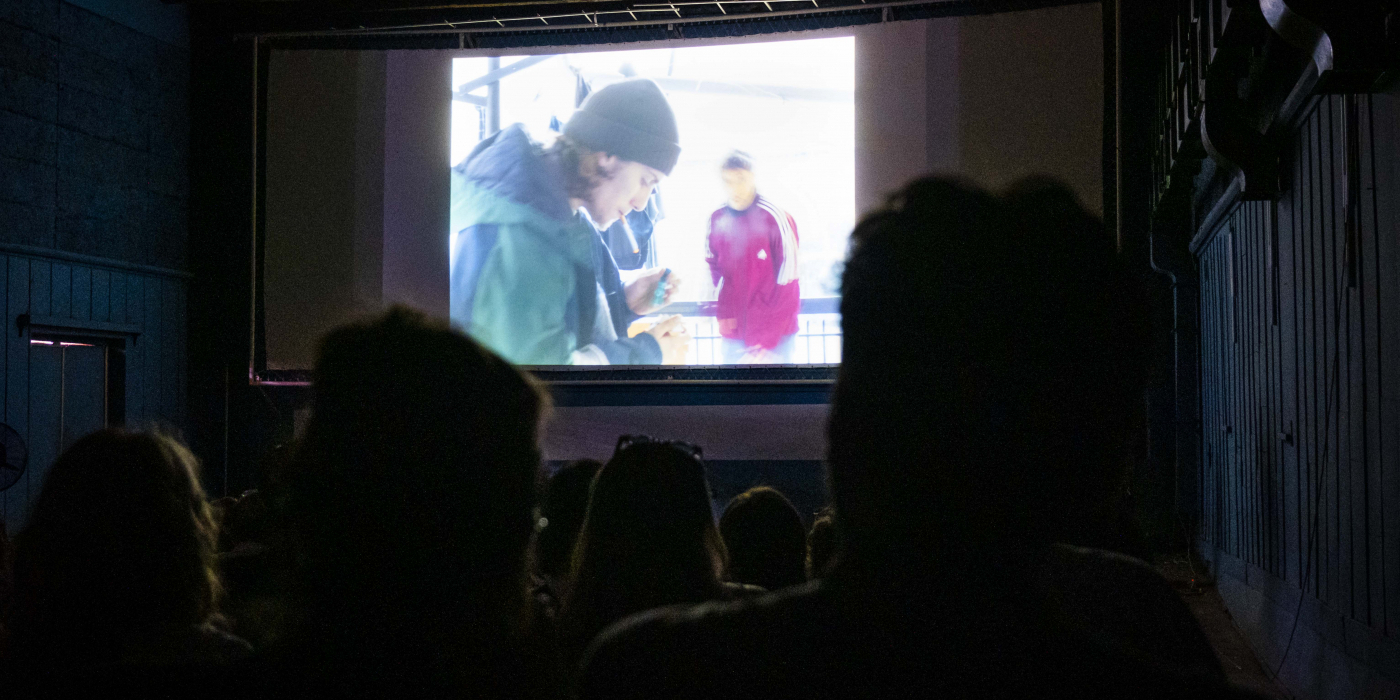12/08/2023
Sheets
An Albanian family faces two contradictory choices that lead the film's characters to a constant fight. Should the human side come first or the law?
Their dilemma involves all family members when a family of immigrants appears in front of their house. The conflicts and discussions made within the four walls of the house reach the pressure the mother puts on the son to inform the police unit.
The temper and pressure can be seen when the lady tries to call the police for the second time, when after the second attempt, she sees her grandson playing with the daughter of the parents who were looking for shelter.
After the screening, the film director Evi Gjoni spoke to the audience about the parallelism of the two situations in this film. "I wanted to include two important things that were happening in those moments, which were the fear of the unknown and the movement of immigrants that has always been continuous, this oppression that is posed to them, even by powerful states. We tried to find a form to summarize both, especially in Albania where these things happened until people could move freely around the world".
The time when she was inspired to write this film script together with two other people was the time of the pandemic where at that time the laws were even more powerful.
Prishtinë 2002
The walls of the half-ruined houses still bear the traces of the last war in Kosovo, one of them appeared in the movie "Pristina 2002", but the main story is not related to the inscriptions, but to the mindset of the children not many years after the war.
Two teenagers, two friends with different opinions unfold their stories, including imaginary people in the middle, and this is seen as a problem for one of them.
Leti is a girl who at that time doesn't care to look 'cool', while Dona, cares about being "in".
Trëndelina Halili, the director of the film "Prishtinë 2002" takes her whole generation back in time. She revealed why this year was chosen in the title of the film and where the idea of this whole story came from.
"The film is like a memory, thus it is made not very chronologically, like a kind of story that goes back in time and shows where it happened, the film was initiated as an idea discussing the manifestation of how children are a kind of very powerful tool of carrying behaviors to future generations".
To return to her memory, Halili shows some elements that had passed on to her in the post-war period.
"It is the graffiti where they write their names, but there are the signs of the Serbs, as their world was created in a very harsh environment. There are abandoned houses, there is graffiti, European Union cars, because of security and others".
Hana e Re
The 9-minute film presents the journey of four friends where the song "My Hatixe n'shami t’kuqe" was heard in the background in their car.
It is not by chance that this song started, because the analysis of its lyrics shows the slavery of women during the 70s.
The story of the movie "Hana e Re" and the song present the same meaning of different situations. The theme of the film was related to abortion and social prejudice. It all starts with the dilemma between studying in America or bearing the name 'Mother'.
The director of the film, Jehona Berisha, said that this film was based on true events. "I had a similar situation with one of my friends and from there I started writing the script. Her pregnancy was not as desired and like Hana, she did not know what to do. The scene closes with Hana in the sea because the sea is endless and in the end, Hana will still be alone in her great sea, while the title comes as a symbol of a new life”.
I kemi varrosur baballarët (We buried our fathers)
The film has three characters. Grandfather and his two nephews. The grandfather lost his two sons in the last war in Kosovo. Unable to pay for two graves for each of them, the grandfather of Dardan and Ujkan is forced to put his two sons in the same grave.
Dardan and Ujkan fight in the middle of the space where the cemetery was, after this conflict, Ujkan gives the passport to Dardan, and the latter leaves the scene with the passport in his hands.
Director Hekuran Isufi emphasizes that the film is more or less his personalized event.
Isufi’s film touches upon some actual issues such as exile, migration, post-war, and connections between generations.
By: Valona Hasani
Photo: Agon Dana



